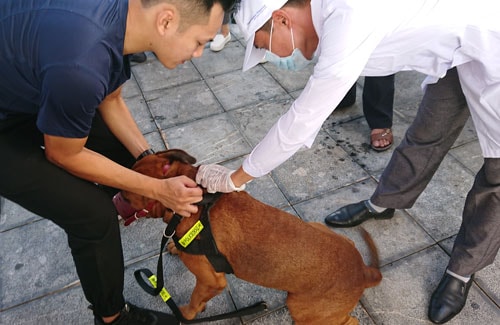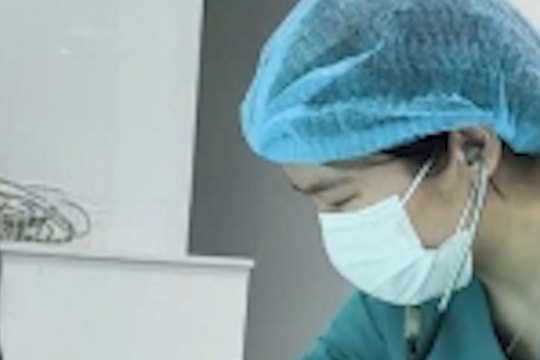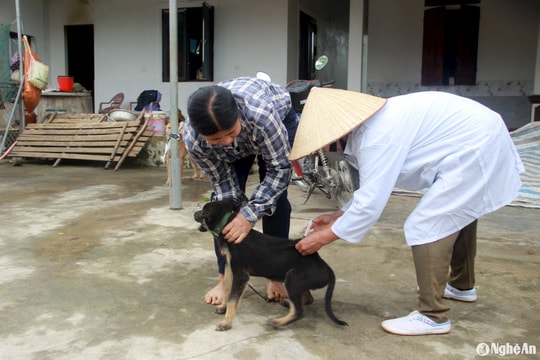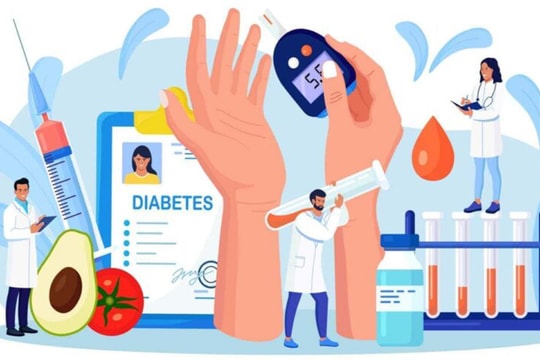Deadly rabies on the rise in Vietnam
Since the beginning of the year, the country has had 57 deaths from rabies, and the disease is on the rise again due to inadequate vaccination.
In 2016, the country had 91 deaths due to rabies, an increase of 17% compared to 2015 and 38% compared to 2014. In the first 9 months of this year alone, 57 deaths were recorded in 29 provinces and cities. The disease has a tendency to increase again, with the number of deaths each year being higher than the previous year; Mr. Dang Quang Tan, Deputy Director of the Department of Preventive Medicine, Ministry of Health, said at the meeting in response to World Rabies Day held in Bac Giang City today.
According to Mr. Tan, the deaths were concentrated in some provinces and cities in the northern mountainous region and the North Central region. The reason was that the disease prevention work was not effective and the rate of rabies vaccination in humans and animals was still low.
 |
Bac Giang people take their dogs for rabies vaccination. |
The principle is that if there is no rabies in dogs, there is no rabies in humans. However, according to the Department of Animal Health, Ministry of Agriculture and Rural Development, the country has more than 7.7 million dogs but only 41% are vaccinated against rabies (nearly 3 million dogs).
Mr. JongHa Bae, Chief Representative of the Food and Agriculture Organization of the United Nations in Vietnam, said that in order to eliminate rabies by 2030, Vietnam needs to take stronger actions, especially managing the actual dog population, increasing vaccination rates and ensuring timely vaccines for people bitten by dogs.
Rabies causes 59,000 deaths worldwide each year. These deaths could have been prevented if three main measures were taken: vaccinating dogs, avoiding dog bites, and going to a medical facility immediately for vaccination if bitten.
Rabies cannot be cured once a person has symptoms of the disease and dies a slow and painful death. However, vaccination immediately after an animal bite can save lives and avoid suffering.
To prevent the disease, the Department of Preventive Medicine, Ministry of Health recommends that people need to take good measures:
- Fully vaccinate dogs and cats and give booster shots annually according to veterinary recommendations.
- Do not let dogs and cats roam free; dogs on the street must wear muzzles.
- Do not joke or tease dogs or cats.
- When bitten, scratched or licked by a dog or cat:
Wash the wound thoroughly with water and strong soap continuously for 15 minutes, if soap is not available, rinse the wound with clean water. This is an effective first aid measure to reduce the risk of rabies when bitten by a dog or cat.
Then continue to wash the wound with 70% alcohol, iodine alcohol or povidone, iodine.
Avoid bruising the wound and do not cover the wound.
Go to the nearest medical center immediately for advice and timely rabies vaccination; only vaccination can prevent rabies.
- Absolutely do not use herbal medicine, do not self-medicate, or ask a witch doctor to treat rabies.
During the vaccination period, continue to monitor the dog that bit you. If after 10 days the dog is still normal and not rabid, you can stop the vaccination.
| Decree 90 of the Government, effective from September 15, stipulates that dog owners who do not muzzle their dogs, do not leash their dogs, or do not have someone to lead their dogs when taking them out in public will be fined 600,000-800,000 VND. Owners who do not vaccinate their dogs against rabies will also be fined 600,000-800,000 VND. |
According to VNE
| RELATED NEWS |
|---|




![[Infographic] Cục Y tế dự phòng khuyến cáo 5 biện pháp phòng bệnh dại [Infographic] Cục Y tế dự phòng khuyến cáo 5 biện pháp phòng bệnh dại](https://bna.1cdn.vn/thumbs/540x360/2024/12/15/ban-sao-cua-thiet-ke-khong-ten.png)



